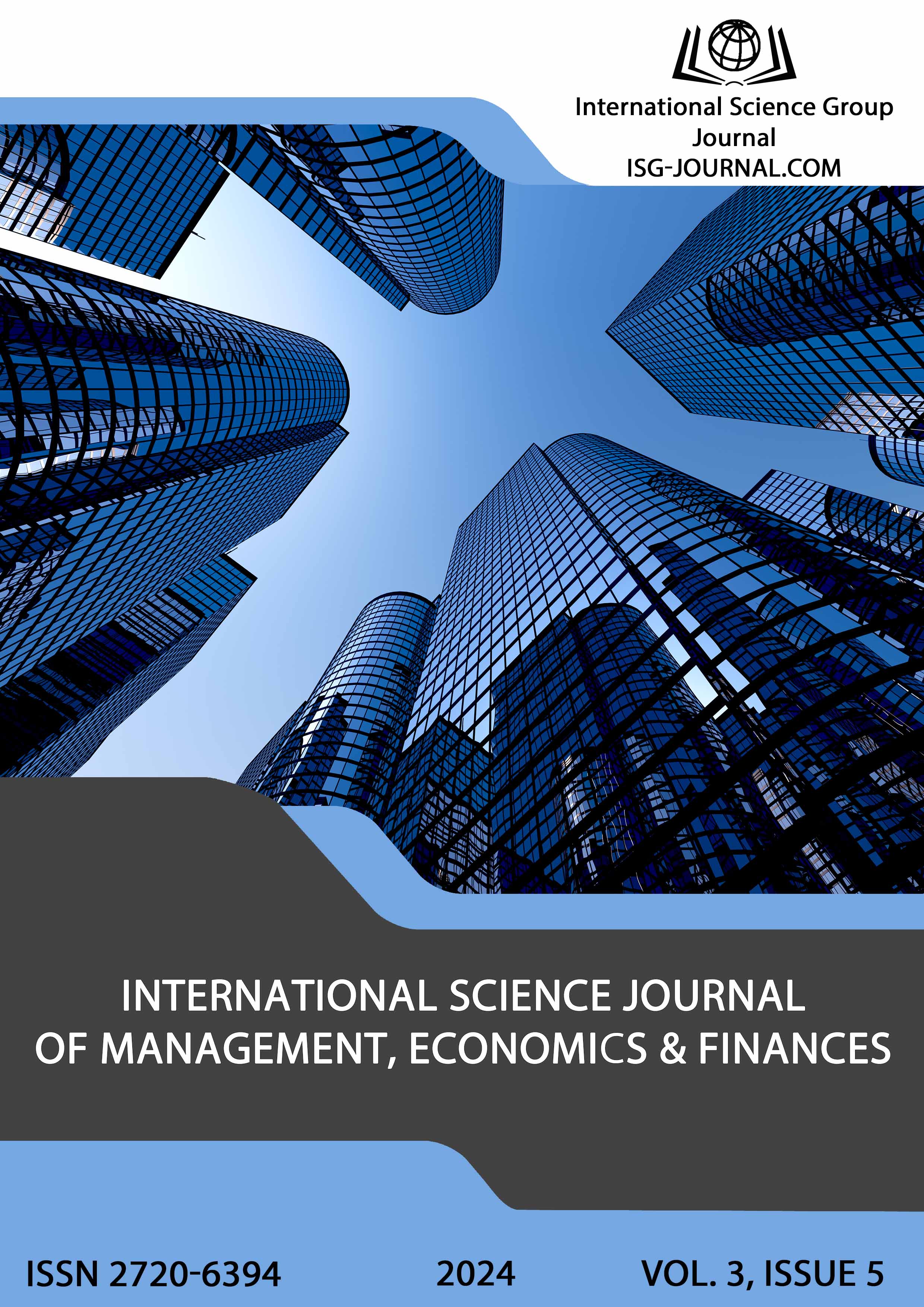Automation of fiscal administration processes using blockchain technology and artificial intelligence
DOI:
https://doi.org/10.46299/j.isjmef.20240305.02Keywords:
automation, blockchain, tax administration, management, financial control, digital transformation, digital tools, artificial intelligenceAbstract
The article is devoted to the analysis of modern methods of automating processes in tax administration. The author considers the possibilities of digital transformation of tax systems using blockchain technology and artificial intelligence (AI). Due to the rapid technological development and the growth of data volumes, the use of artificial intelligence is becoming increasingly important for effective financial management and the application of the latest technologies in tax administration. The purpose of the study is to find out how the use of the latest process automation tools can help improve the financial management of companies. The hypothesis of the study is that automation of tax administration processes can lead to increased efficiency and accuracy of decision-making. The article discusses the main possibilities of tax administration process automation and their advantages. The study shows that the latest process automation tools can help detect financial irregularities and fraud, as well as automate accounting and financial data analysis. To achieve this goal, the article uses a literature review and research based on information on the implementation of process automation in tax administration. The article pays special attention to smart contracts, which allow for the automatic fulfilment of conditions and obligations arising from tax legislation, such as the automatic calculation and reservation of VAT for each transaction.References
Кулинич, М. Б., Матвійчук, І. О., Сафарова, А. Т., Герасименко, Т. О. (2021) Діджиталізація обліку, аналізу та оподаткування в системі управління підприємством. Вісник Львівського торговельно- економічного університету. Економічні науки.. № 64. С. 57-63.
Матвейчук, Л. О. (2016) Інформаційні технології і системи в державному управлінні оподаткуванням. Публічне управління та митне адміністрування. № 1. С. 77-84.
Донченко, Т. В., Олійник, А. В. (2019) Етапи становлення податкової системи України в контексті розвитку цифрової економіки. Збірник наукових праць Університету державної фіскальної служби України. № 1. С. 45-62.
Попівняк, Ю.М. (2019) Технологія блокчейн у бухгалтерському обліку й аудиті: сучасний стан, можливості та перспективи застосування. Економіка, управління та адміністрування. № 3 (89). С. 137-144. Available at:: https://www.researchgate.net/publication/337751904_Tehnologia_blokcejn_u_buhgalterskomu_obliku_j_auditi_sucasnij_ stan_mozlivosti_ta_perspektivi_zastosuvanna
Побережник, В., Опірський, І. (2023) Розробка концепції методу використання технології блокчейн для побудови системи обміну повідомленнями. Захист інформації, Том 25, № 2, квітень-червень С. 62-70. Available at:: https://www.researchgate.net/publication/375054859_ROZROBKA_KONCEPCII_METODU_VIKORISTANNA_TEHNOLOGn_BLOKCEJN_DLA_ POBUDOVI_SISTEMI_OBMINU_POVIDOMLENNAMI
Кривенко, Ю.В. (2023) Щодо поняття та ознак смарт-контракту. Науковий вісник Міжнародного гуманітарного університету. Сер.: Юриспруденція. № 64. Available at:: https://www.vestnik-pravo.mgu.od.ua/archive/juspradenc64/16.pdf
Приймук, В.В. (2023) Впровадження штучного інтелекту у фінансову діяльність підприємства. Збірник наукових праць Державного податкового університету. № (1). С. 183–198.
Рогова, Н. В. (2020) Трансформація політики, інструментів і технологій обліку та оподаткування в умовах цифрової економіки. Фінансовий простір. № 2 (38). С. 103-116.
Святаш, С. В. (2018) Автоматизація податкового рахівництва у контексті створення податкової інформаційної бази для аналізу та контролю. Вчені записки Таврійського національного університету імені В. І. Вернадського. Серія : Економіка і управління. № 1. Т. 29 (68). С. 102-108.
The fourth industrial revolution, robotics, and artificial intelligence. Available at:: https://www.pgcareers.com/fourth-industrialrevolution
Жигалкевич, Ж. М., Залуцький, Р. О. (2020) Діджиталізація як основний фактор розвитку бізнес-структур. Ефективна економіка. № 11. URL: http://www.economy.nayka.com.ua/?op=1&z=8380
Wu, G., Wang, J., Wang, Y., & Qian, Y. (2020). Machine learning in financial management: A systematic literature review. Journal of Financial Management. 2(1), 1-16
Baranovskyi O., Kuzheliev M., Zherlitsyn D., Serdyukov K., Sokyrko O. (2021) Cryptocurrency market trends and fundamental economic indicators: correlation and regression analysis / Financial and Credit Activity : Problems of Theory and Practice. № 3(38). P. 249-261
Telnova, H., Kolodiziev, O., Krupka, I., & Boiko, N. (2020) Foreign direct investment in the eurozone countries: stochasticity of the financial influence factors / Financial and Credit Activity-Problems of Theory and Practice. 4 (35), 107-120
Zherlitsyn, D., Rekunenko, I., Nechyporenko, A. & Nemsadze, G. (2020) The impact of inflation targeting on macroeconomic indicators in Ukraine / Banks and Bank Systems. 15(2), 94-104.
Downloads
Published
How to Cite
Issue
Section
License
Copyright (c) 2024 Mariana Poliak-Sverhun

This work is licensed under a Creative Commons Attribution 4.0 International License.






